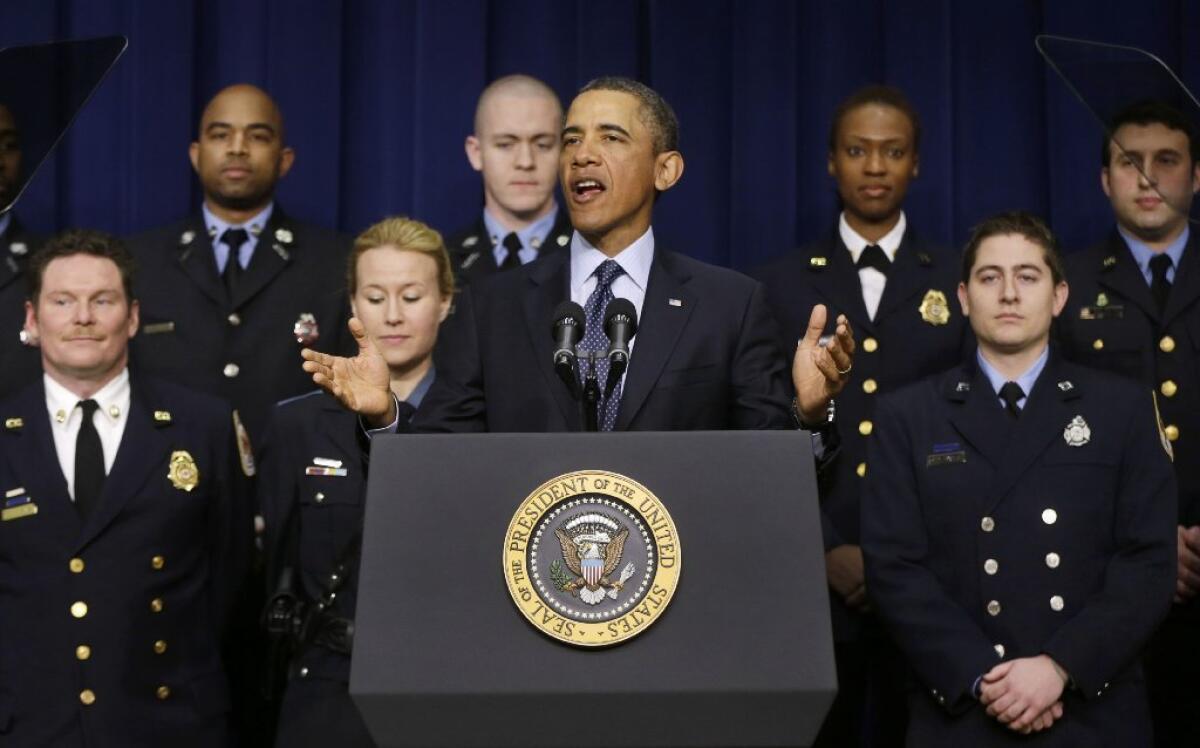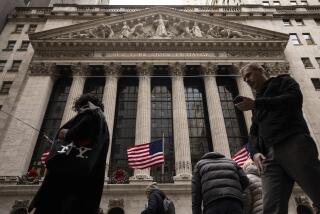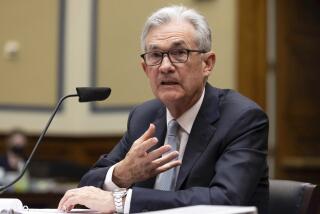Most economists see âsequestrationâ budget cuts as unavoidable

WASHINGTON -- With just a few days to go before new government spending cuts are set to take effect, what are the chances that another eleventh-hour action will avert the latest impending hit to the economy?
Very little, according to a survey of economists released Monday by the National Assn. for Business Economics. The group said that nearly 60% of economists now expect the so-called sequestration, which will slice about $85 billion from the federal budget, to begin March 1 in full or partial form.
The survey of 49 professional economists, representing industry, government and universities, indicates that experts donât see a recession scenario as a result of the new spending cuts, as they did the âfiscal cliffâ of tax increases and fiscal reductions, which were mostly avoided at the last minute at the start of this year.
More than half of these economists predicted that the effects of sequestration and other budget uncertainties would shave economic growth by less than half a percentage point this year. Another one-third said the pain would be greater, with real gross domestic product, or total economic output, sliced by up to a full percentage point.
Either way, thatâs no small number given the mediocre pace of GDP growth since the Great Recession of a little more than 2% on average. And many economists, policymakers and business people across the country have expressed fears that the indiscriminate nature of the cuts under sequestration will impose unnecessary hardships on certain programs such as Head Start for preschool children.
Total government spending and investments are now seen as falling by 1% this year from 2012, according to the median, or mid-point, of the responses from the economists surveyed. That is worse than the 0.6% drag forecast in the associationâs survey in December.
Real GDP is expected to expand by 2% this year, down a bit from the 2.2% GDP growth in 2012. The nation is projected to add 170,000 jobs a month on average, down from 181,000 last year, according to the median value of responses. That should bring down the unemployment rate gradually, to 7.5% in the fourth quarter of 2013 from 7.9% at the start of this year.
Economists, however, see economic growth accelerating next year as the nation absorbs the fiscal spending cuts and benefits from the housing market recovery and a pickup in business investments. Real GDP is seen as growing by almost 3% in 2014, the survey said, and the unemployment rate is forecast to fall to 7% by the end of next year.
ALSO:
U.S. debt woes are not so dire, experts say
Average Americans are feeling pain of U.S. debt
54% of Americans want Congress to delay spending cuts, poll says
More to Read
Inside the business of entertainment
The Wide Shot brings you news, analysis and insights on everything from streaming wars to production â and what it all means for the future.
You may occasionally receive promotional content from the Los Angeles Times.











